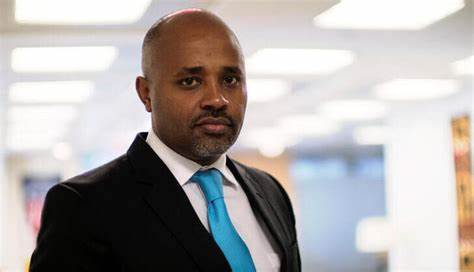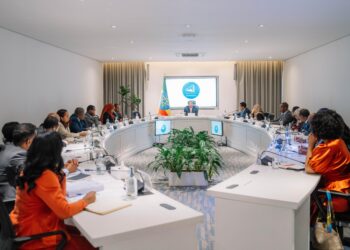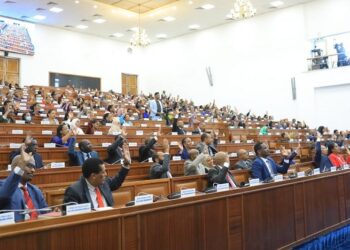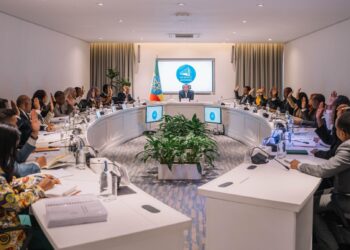Ethiopia expects to reach a preliminary agreement with the International Monetary Fund (IMF) this week on the third review of its $3.4 billion loan program, according to State Finance Minister Dr. Eyob Tekalign. Speaking during the IMF and World Bank Group Spring Meetings in Washington, Dr. Eyob noted that formal negotiations with bondholders are likely to begin this summer.
The IMF-backed program, signed in July 2024, supports Ethiopia’s sweeping economic reforms, including a shift to a market-based exchange rate for the birr and a comprehensive debt restructuring plan.
“We’ve exceeded expectations in several key areas, such as reserve accumulation, inflation control, and export performance,” said Dr. Eyob, following his discussions with IMF Managing Director Kristalina Georgieva and other officials. He expects the IMF Executive Board to formally approve the review in June, unlocking the next tranche of funding under the program.
Dr. Eyob also described recent discussions with some holders of Ethiopia’s $1 billion Eurobond as constructive, though formal negotiations on debt restructuring are pending until the IMF releases updated debt sustainability assessments (DSA). Ethiopia, which defaulted on its Eurobond in December 2023, has faced disagreement with bondholders over whether its challenges are rooted in liquidity or solvency. The distinction could determine whether debt payments are delayed or reduced through a haircut.
In March, Ethiopia reached a draft agreement with official creditors to restructure $8.4 billion in debt. The deal primarily focuses on extending payment timelines and lowering interest rates without imposing haircuts. Dr. Eyob emphasized the importance of fair treatment across all creditor groups.
“This debate over haircuts can be a distraction,” he said. “The real goal is to ensure sustainable financing for Ethiopia’s development.”
Ethiopia initiated its debt restructuring under the G20 Common Framework in 2021.
In addition to IMF and creditor talks, Dr. Eyob revealed ongoing discussions with China’s Export-Import Bank and China Development Bank to secure concessional loans for major infrastructure projects, including upgrades to Addis Ababa’s light rail and airport facilities. He also held meetings with the U.S. International Development Finance Corporation (DFC), which is exploring both direct investments and credit guarantees in sectors like energy.
“We’re considered a priority country, and we anticipate more U.S. investments moving forward,” Dr. Eyob added.
Source: Reuters





















